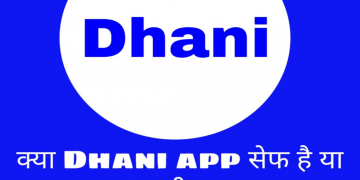When it comes to adopting new technology, there are always a few holdouts who are hesitant to change the way they’ve always done things. This can often be the case with eSignature. People may have a lot of misconceptions about electronic signatures, thinking that they’re not as secure or legally binding as traditional signatures. We’re here to set the record straight and debunk the top 5 myths about eSignatures.
Myth #1: ESignatures are less secure than traditional paper-based signatures
There is a common misconception that eSignatures are less secure than traditional paper-based signatures, but this simply isn’t true. In fact, eSignatures offer a number of advantages over traditional methods, including built-in authentication and verification tools and the ability to create tamper-proof records. Furthermore, with electronic signatures there is no risk of illegible or faulty handwriting which can lead to processing delays and even rejection of important documents.
Myth #2: ESignatures are not legally binding
Despite what many people may think, eSignatures are just as legally binding as traditional signatures found on paper documents. The basic requirements for an eSignature to be deemed valid are quite simple: the signature must be created using advanced technology such as digital signatures, biometric authentication, or smart contracts; it must be uniquely linked to the signee; and it must be capable of capturing intent. As long as these criteria are met, an eSignature can carry the same legal weight as a traditional signature, making it an invaluable tool in today’s digital age. Whether you’re tracking document revisions, executing business contracts, or authorizing payments, electronic signatures help to simplify and streamline all types of transactions.
Myth#3: All eSignature providers are created equal
When choosing an eSignature provider, it’s important to do your research and select a reputable company that can offer a high level of security and compliance. Not all eSignature providers are created equal, and it’s important to find one that meets your specific needs. For example, if you’re looking for an eSignature solution that is compliant with the European Union’s eIDAS regulation, make sure to select a provider that offers this type of compliance.
Myth #4: ESignatures take too long to create
Contrary to what many people believe, eSignatures are actually quite quick and easy to create. This is because most eSignature software uses advanced technology that automatically captures a user’s unique signature and converts it into a digital format. Additionally, since eSignatures are largely cloud-based, there is no need for users to store them on their computers or mobile devices. And thanks to self-service features like templates and customizable fields, even novice users can quickly create and save their signatures without any hassle or hassle.
Myth #5: ESignatures are expensive
Contrary to popular belief, eSignatures are a cost-effective way to sign documents and conduct business. Compared to traditional methods of signing documents, such as paper signature pads or faxing signatures from a dedicated machine, eSignatures dramatically reduce costs by eliminating the need for physical paper and associated supplies. Furthermore, since eSignatures can be implemented at all stages of the business process – from initial agreement on a deal through final execution – this streamlined approach helps companies save time and resources.
Conclusion
Don’t fall victim to these common myths about eSignatures – they’re not true! Electronic signatures are a secure, legally binding, and cost-effective way to sign documents and conduct business. If you’re looking for an eSignature solution that meets your specific needs, make sure to do your research and select a reputable provider.
Read more interesting articles at timesofworld


























































